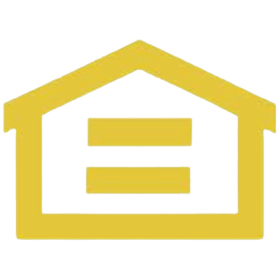Pre-Approval Process
How do I know how much house I can afford?
This is a personalized question that is best discussed with your financial advisor or mortgage provider. Generally, the amount that you can borrow will also depend upon your employment history, credit history, current savings and debts, and the amount of down payment you are willing to make. You may also be able to take advantage of special loan programs for first time buyers.
How can I finance my new home?
There are several financing options available to new home buyers. One option is to work with our onsite lending partners. Our lending partners are familiar with the new home building process and can provide competitive rates, programs, and solutions.
How do I know which type of mortgage is best for me?
There is no simple formula to determine the type of mortgage that is best for you. This choice depends on many factors, including your current financial picture and how long you intend to stay in your house. Our team of mortgage professionals can help you evaluate your choices and help you make the most appropriate decision.
What is the difference between a fixed-rate loan and an adjustable-rate loan?
With a fixed-rate mortgage, the interest rate stays the same during the life of the loan. With an adjustable-rate mortgage (ARM), the interest changes periodically, typically in relation to an index. While the monthly payments that you make with a fixed-rate mortgage are relatively stable, payments on an ARM loan will likely change. There are advantages and disadvantages to each type of mortgage, and the best way to select a loan program is to speak with one of our mortgage professionals.
What does a mortgage payment include?
- For most homeowners, the monthly mortgage payment includes the following, also known as PITI:
- Principal: Repayment on the amount borrowed
- Interest: Payment to the lender for the amount borrowed
- Taxes & Insurance: Monthly payments are normally made into a special escrow account for items like hazard insurance and property taxes. This feature is sometimes optional, in which case the fees will be paid by you directly to the County Tax Assessor and property insurance company.
- Private Mortgage Insurance (PMI), a policy that fulfills those obligations of a mortgage when the policy holder defaults or is no longer able to make payments, may also be required.
How much cash will I need to purchase a home?
The amount of cash that is necessary depends on a few items. Generally speaking, you will need to supply:
Earnest Money: The deposit that is supplied when you make an offer on the house
Down Payment: A percentage of the cost of the home that is due at settlement
Closing Costs: Costs associated with processing paperwork to purchase or refinance a house.
What is a Mortgage Rate Lock and when can I lock in the interest rate on my loan?
Depending upon market conditions, fluctuations in mortgage rates can happen on a daily (and even hourly) basis. A mortgage rate lock is a financial tool that is provided by lenders to help control the fluctuation of mortgage interest rates during the processing of your loan. Rate locks are generally available between 30 and 60 days but can sometimes be extended a little bit longer.

